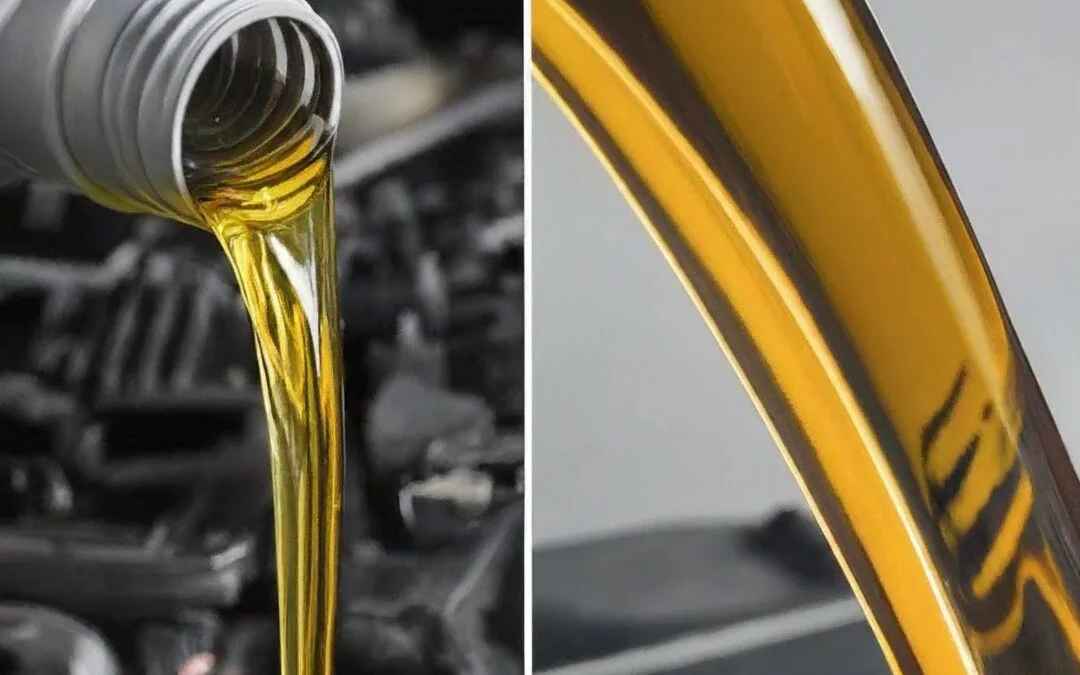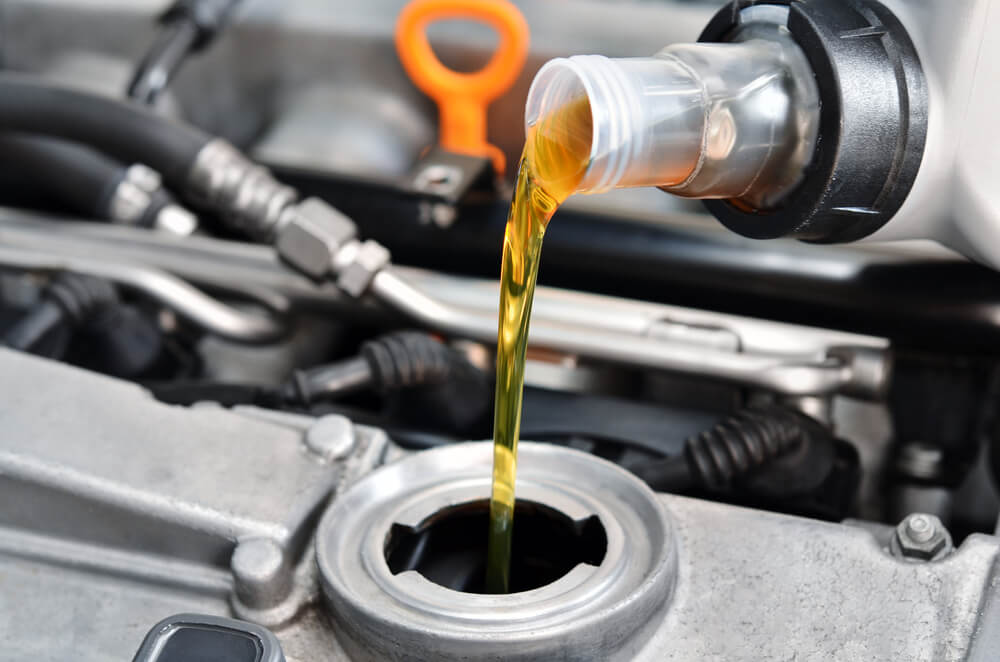Tittle: “Where to Sell Used Motor Oil: Turning Waste into Cash”
Introduction
Imagine turning a routine vehicle maintenance task into a profitable endeavor while simultaneously contributing to a greener planet. It’s not a pipe dream—it’s the reality of selling used motor oil. Beyond its environmental benefits, used motor oil possesses hidden value that many individuals and businesses overlook. In this blog, we will unravel the mystery of where to sell used motor oil, guiding you through various avenues to turn this seemingly discarded waste into cash. So, if you’re curious about how to tap into the potential of your used motor oil, read on. Your engine’s waste could become your wallet’s treasure.
The Market for Used Motor Oil: Unveiling Hidden Value
Used motor oil, often seen as a mere byproduct of routine vehicle maintenance, possesses a hidden value that few are aware of. The market for used motor oil is not only a thriving industry but also an essential part of sustainability efforts worldwide. In this article, we’ll delve into the fascinating world of the used motor oil market, shedding light on its demand, factors influencing pricing, and the environmental benefits of recycling this valuable resource.
1. Understanding the Demand:
Contrary to what one might expect, there’s a robust demand for recycled motor oil. Re-refining used oil into high-quality lubricants is a sustainable alternative to producing lubricants from virgin crude oil. Industries such as automotive, manufacturing, and agriculture rely on these recycled lubricants to reduce their environmental footprint.
2. Factors Influencing Pricing:
Several factors influence the price of used motor oil in the market:
- Quality and Purity: The cleanliness and purity of the used oil play a significant role in determining its value. Well-maintained, uncontaminated oil fetches a higher price.
- Market Demand: Like any other commodity, the price of used motor oil can fluctuate based on supply and demand. Increased demand for recycled lubricants can drive up prices.
- Recycling Processes: The cost of re-refining used oil into a reusable product affects pricing. Efficiency in recycling processes can impact the final price.
3. The Environmental Benefits:
Beyond its economic value, the recycling and sale of used motor oil offer substantial environmental advantages:
- Resource Conservation: Recycling used oil conserves valuable natural resources like crude oil. It reduces the need for new oil production, which can be resource-intensive and environmentally damaging.
- Energy Efficiency: Re-refining used motor oil typically consumes less energy than refining crude oil, resulting in lower greenhouse gas emissions.
- Pollution Mitigation: Proper disposal and recycling of used motor oil prevent pollution of land, water, and air. This helps protect ecosystems, water supplies, and public health.
4. Promoting Sustainability:
Selling your used motor oil contributes to the broader sustainability effort. It’s a way to actively participate in reducing the environmental impact of the automotive industry and other sectors that rely on lubricants.
Preparing Your Used Motor Oil for Sale: Turning Waste into Profit
If you’ve ever wondered about monetizing your used motor oil, you’re onto something big. Selling used motor oil is not only an eco-conscious decision but also a potentially profitable one. To maximize the value of your used oil and ensure a smooth sale, it’s crucial to prepare it correctly. In this article, we’ll walk you through the essential steps to get your used motor oil ready for sale.
1. Quality Matters:
High-quality used motor oil is more valuable in the market. To maintain quality, avoid mixing different types of oil and refrain from using additives. Keep your oil free from contaminants like water, dirt, and other chemicals.
2. Use Proper Storage:
Store your used motor oil in clean, leak-proof containers with secure lids. This prevents spills, contamination, and loss of oil quality. Make sure the containers are labeled clearly as “Used Motor Oil.”
3. Safety First:
When handling used motor oil, prioritize safety. Wear gloves and safety goggles to protect your skin and eyes. Ensure you’re in a well-ventilated area, as exposure to oil fumes can be harmful.
4. Filter the Oil:
Before selling, it’s a good practice to filter the used motor oil to remove any impurities or debris. A fine mesh filter or funnel with a filter can help you achieve cleaner oil.
5. Keep Records:
Maintain detailed records of your used oil collection, including dates, quantities, and any relevant information. These records can be helpful for tracking sales and ensuring compliance with local regulations.
6. Check Local Regulations:
- Research and understand the local regulations governing the sale of used motor oil. Compliance with these regulations is essential to avoid legal issues and penalties.
7. Choose the Right Selling Platform:
Decide how you want to sell your used motor oil. Options include local auto parts stores, recycling centers, online platforms, and even refineries. Each option may have specific requirements, so choose one that aligns with your preferences and goals.
8. Quantities Matter:
Keep in mind that the quantity of used motor oil you have can impact your selling options. Some buyers may have minimum or maximum quantity requirements. Ensure you meet these criteria to streamline your sales process.
9. Stay Informed:
Be aware of current market conditions and prices for used motor oil. Staying informed about market trends can help you negotiate a fair price and make the most of your sale.
10. Responsibility and Transparency: – Be transparent about the quality and condition of your used motor oil when negotiating with potential buyers. Honesty builds trust and can lead to long-term business relationships. By following these steps, you can effectively prepare your used motor oil for sale. Not only will you contribute to environmental sustainability by recycling and selling your oil, but you’ll also have the opportunity to turn a previously discarded resource into a source of income. Selling used motor oil is a win-win for both your wallet and the planet.
Selling to Local Auto Parts Stores: Turning Used Motor Oil into Cash
When it comes to selling your used motor oil, one of the most convenient and accessible options is to approach your local auto parts store. Many of these stores actively participate in used motor oil buyback programs, creating a straightforward and hassle-free way for you to convert your used oil into cash. In this article, we’ll guide you through the process of selling to local auto parts stores, highlighting the benefits and offering tips for a successful transaction.
Benefits of Selling to Local Auto Parts Stores:
- Convenience: Local auto parts stores are typically located nearby, making it easy for you to drop off your used motor oil without extensive travel.
- Immediate Payment: Most stores offer prompt payment for your used oil, allowing you to receive compensation quickly.
- Compliance with Regulations: Auto parts stores are usually well-versed in local regulations, ensuring that your sale is in full compliance with legal requirements.
- Support for Responsible Disposal: By selling your used motor oil to these stores, you contribute to responsible disposal practices and help promote environmental sustainability.
Steps to Successfully Sell to Local Auto Parts Stores:
- Collect and Prepare Your Used Oil:Gather your used motor oil in clean, labeled containers. Ensure the oil is free from contaminants, properly stored, and filtered to remove impurities.
2. Contact the Store:Reach out to your local auto parts store to confirm their participation in a used motor oil buyback program. Inquire about their specific requirements and any documentation needed.
3. Bring Your Used Oil In: Transport your used motor oil to the store in accordance with their guidelines. Use secure containers to prevent spills during transit.
4. Be prepared for a brief inspection of your used oil. The store may check for quality and ensure that it meets their criteria for purchase.
5. Complete the Transaction:Once your used motor oil is accepted, the store will provide you with compensation. Payment methods may vary, so inquire about their preferred method.
6. Ask About Future Sales:If you have a consistent supply of used motor oil, inquire about establishing an ongoing relationship with the store for regular sales.
Tips for a Successful Sale:
- Know the Quality: Ensure that your used motor oil meets the store’s quality standards. Clean, uncontaminated oil will command a better price.
- Be Transparent: Provide accurate information about the quantity, quality, and condition of your used motor oil. Honesty builds trust with the buyer.
- Documentation: Keep records of your used oil sales, including dates, quantities, and payment details for your reference.
- Check Local Regulations: Familiarize yourself with local regulations to ensure your sale is compliant and legal.
Selling your used motor oil to local auto parts stores is a convenient and responsible way to dispose of this resource while earning some extra cash. It’s a win-win situation, contributing to a cleaner environment and putting money in your pocket. So, the next time you change your vehicle’s oil, consider turning your used oil into a valuable asset by selling it to your neighborhood auto parts store.
Recycling Centers and Collection Points: Where Environmental Responsibility Meets Convenience
Recycling centers and collection points play a pivotal role in the responsible disposal and recycling of used motor oil. These facilities provide individuals and businesses with a dedicated space to drop off their used oil, ensuring it is properly handled, recycled, and, in some cases, compensated for. In this article, we’ll explore the significance of recycling centers and collection points, how to use them effectively, and the environmental benefits they bring.
The Importance of Recycling Centers and Collection Points:
- Environmental Stewardship: Recycling centers and collection points are at the forefront of environmental responsibility. They prevent used motor oil from being improperly disposed of, which could lead to soil and water contamination.
- Convenient Disposal: These facilities offer an accessible and convenient solution for those who want to ensure that their used motor oil is handled in an eco-friendly manner.
- Resource Recovery: Recycling centers and collection points facilitate the recovery of valuable resources from used motor oil, contributing to resource conservation and sustainability.
How to Use Recycling Centers and Collection Points:
- Locate Nearby Facilities: Research and identify recycling centers or collection points in your area. Local government websites, environmental agencies, and directories can be valuable resources for finding these locations.
- Prepare Your Used Motor Oil: Before visiting, prepare your used motor oil by storing it in clean, labeled containers. Ensure the oil is uncontaminated and free from debris.
- Transport Safely: Transport your used motor oil to the facility securely, using appropriate containers to prevent spills or leaks during transit.
- Follow Facility Guidelines: Comply with any guidelines or requirements provided by the recycling center or collection point. Some facilities may have specific hours of operation or documentation needs.
- Submit Your Used Oil: Hand over your used motor oil to the facility staff or follow the provided instructions for drop-off. Be prepared for a brief inspection to ensure your oil meets their quality standards.
- Compensation (If Applicable): In some cases, recycling centers may offer compensation for your used motor oil. This compensation can vary depending on market conditions and the facility’s policies.
Environmental Benefits of Recycling Centers and Collection Points:
- Prevent Pollution: Recycling centers and collection points prevent used motor oil from being improperly disposed of, reducing the risk of soil and water pollution.
- Resource Conservation: These facilities contribute to resource conservation by recycling used oil, reducing the need for new oil production.
- Energy Efficiency: Re-refining used motor oil consumes less energy than refining crude oil, which leads to lower greenhouse gas emissions.
- Support for Sustainability: Recycling centers and collection points actively support sustainable practices by ensuring the responsible disposal of used motor oil.
Recycling centers and collection points are integral components of responsible used motor oil disposal and recycling. By utilizing these facilities, you contribute to environmental stewardship and resource conservation while conveniently disposing of your used oil. So, the next time you’re pondering what to do with your used motor oil, consider visiting a nearby recycling center or collection point to make a positive impact on our planet.
Selling to Refineries or Re-refining Companies: Maximizing the Value of Used Motor Oil
When it comes to selling used motor oil, one of the most eco-conscious and potentially lucrative options is to sell it to refineries or re-refining companies. These entities specialize in reprocessing used oil, transforming it into high-quality lubricants, and contributing to a more sustainable future. In this article, we’ll delve into the advantages of selling to refineries or re-refining companies, the process involved, and tips for a successful transaction.
Benefits of Selling to Refineries or Re-refining Companies:
- Eco-Friendly Approach: Selling your used motor oil to refineries supports the re-refining process, which is significantly more environmentally friendly than producing lubricants from virgin crude oil.
- Resource Conservation: Re-refining used oil conserves valuable natural resources, such as crude oil. This contributes to reducing the environmental impact associated with oil extraction.
- Economic Potential: Depending on market conditions, selling to refineries or re-refining companies can offer competitive compensation, potentially yielding higher returns compared to other disposal methods.
Steps to Successfully Sell to Refineries or Re-refining Companies:
- Quality Assurance: To maximize the value of your used motor oil, ensure it meets quality standards. Clean, uncontaminated oil with minimal impurities commands a higher price.
- Locate Potential Buyers: Research and identify refineries or re-refining companies in your region that purchase used motor oil. Online directories, industry associations, or environmental agencies may provide leads.
- Contact Potential Buyers: Reach out to the identified companies to express your interest in selling your used motor oil. Inquire about their specific requirements, pricing, and the process for selling.
- Documentation and Inspection: Be prepared for a potential inspection of your used oil to determine its quality and suitability for re-refining. Provide any necessary documentation related to your oil’s history and characteristics.
- Negotiate the Deal: Engage in negotiations with potential buyers to secure a fair price for your used motor oil. Ensure that all terms and conditions are clearly defined before proceeding.
- Transport and Delivery: Arrange for the safe and secure transportation of your used oil to the buyer’s facility, adhering to any transportation guidelines they provide.
- Payment: Upon successful delivery and inspection, expect to receive compensation as agreed upon in the negotiation phase. Payment methods and timelines may vary, so clarify these details in advance.
Tips for a Successful Sale:
- Quality Matters: Maintain the quality of your used motor oil by ensuring it is uncontaminated and free from debris.
- Research the Market: Stay informed about current market conditions and prices for used motor oil. This knowledge can help you negotiate a fair price.
- Compliance and Transparency: Adhere to all regulatory requirements and be transparent about the quality and condition of your used motor oil when negotiating with potential buyers.
Selling your used motor oil to refineries or re-refining companies not only offers economic incentives but also supports sustainable practices and reduces environmental impact. It’s a win-win situation that allows you to contribute to a cleaner planet while potentially earning a competitive income from your used oil. So, if you’re looking to maximize the value of your used motor oil, consider exploring this environmentally responsible option.
DIY Oil Recycling and Earnings: Turning Your Garage into a Green Profit Center
Changing your vehicle’s oil is a routine maintenance task. But did you know that you can transform this chore into a green profit center by recycling your used motor oil? Not only does this approach contribute to environmental sustainability, but it can also put some extra money in your pocket. In this article, we’ll explore the world of DIY oil recycling, offering tips on how to accumulate sufficient quantities for profitable sales and emphasizing safety and environmental considerations.
Collecting Used Motor Oil for Profit:
- Quantity Matters: To make DIY oil recycling financially rewarding, you’ll need to accumulate a sufficient quantity of used motor oil. Consider coordinating your oil changes or reaching out to friends and family to collect their used oil as well.
- Proper Storage: Invest in large, labeled containers to store the collected used motor oil. Ensure these containers are sealed tightly to prevent leakage or contamination.
- Safety Precautions: Prioritize safety during the collection and storage process. Wear gloves, safety goggles, and work in a well-ventilated area to avoid exposure to harmful fumes.
Finding Buyers:
- Research Local Options: Look for local auto parts stores, recycling centers, or refineries that purchase used motor oil. Contact them to inquire about their buying process and any specific requirements.
- Explore Online Platforms: Online marketplaces or forums may also provide opportunities to sell your used motor oil to individuals or businesses interested in recycling.
Environmental and Safety Considerations:
- Recycle Responsibly: Ensure that your used motor oil is recycled through approved and environmentally responsible channels. Avoid improper disposal methods like pouring it down drains or onto the ground.
- Dispose of Filters Properly: Used oil filters also contain oil residues. Dispose of them at recycling centers or auto parts stores that accept them for recycling.
- Avoid Mixing Contaminants: Keep used motor oil free from contaminants like water, dirt, and chemicals. Contaminated oil is less valuable and may not be accepted by buyers.
- Observe Local Regulations: Be aware of and comply with local regulations governing the storage and transportation of used motor oil. Non-compliance can lead to penalties.
Selling and Earnings:
- Negotiate Fairly: When selling your used motor oil, negotiate a fair price based on the quantity, quality, and current market conditions. Honesty and transparency are essential during negotiations.
- Document Transactions: Keep records of your used motor oil sales, including dates, quantities, and payment details, for your reference and tax purposes.
Recycling your used motor oil as a DIYer can be both environmentally responsible and financially rewarding. By following proper storage, safety precautions, and complying with regulations, you can turn your garage into a green profit center. Additionally, your commitment to recycling used motor oil contributes to a cleaner planet and demonstrates the power of individual actions in promoting sustainability.
Conclusion
The journey to selling used motor oil is not just about making money; it’s a testament to the power of responsible choices. Whether you choose local auto parts stores for convenience, recycling centers for environmental stewardship, refineries for eco-conscious earnings, or DIY oil recycling for a blend of both, you’re actively participating in a cleaner, greener future.
By embracing these options, you not only put extra cash in your pocket but also play a vital role in resource conservation and pollution prevention. Your used motor oil becomes a valuable asset, contributing to a sustainable world. So, no matter which path you take, the destination is the same: a brighter and more environmentally friendly tomorrow.
Useful links:
https://junkyardsnearme.net/who-buys-used-motor-oil-near-me
Take Action Now!
Ready to turn your used motor oil into cash and make a positive impact on the environment? Don’t wait! Explore the options mentioned in this article, from local auto parts stores and recycling centers to refineries and DIY oil recycling. Find the method that aligns with your goals and values, and start the journey to responsible used motor oil disposal and potential earnings today. Your actions can lead to a cleaner planet and a healthier wallet.
Frequently Asked Questions (FAQ) About Where to Sell Used Motor Oil
1. Where can I sell my used motor oil?
- You can sell your used motor oil to a variety of buyers, including local auto parts stores, recycling centers, refineries, and online platforms. The choice depends on your location, preferences, and quantity of used oil.
2. How much can I earn from selling used motor oil?
- The earnings from selling used motor oil can vary widely depending on factors such as the quantity and quality of the oil, current market conditions, and the buyer’s policies. It’s advisable to research local prices and negotiate with potential buyers for the best deal.
3. Do I need to prepare my used motor oil before selling it?
- Yes, it’s essential to prepare your used motor oil properly. Store it in clean, labeled containers, and ensure it is free from contaminants like water, dirt, and chemicals. High-quality, uncontaminated oil typically fetches a higher price.
4. Are there any regulations or legal requirements when selling used motor oil?
- Yes, there may be regulations and legal requirements governing the sale of used motor oil in your area. These regulations can include storage, transportation, and documentation guidelines. It’s essential to comply with local laws to avoid penalties.
5. Can I sell used motor oil from DIY oil changes?
- Absolutely! DIYers can collect and sell their used motor oil. To make it financially rewarding, consider coordinating oil changes with friends and family to accumulate sufficient quantities for profitable sales.





Leave a Reply